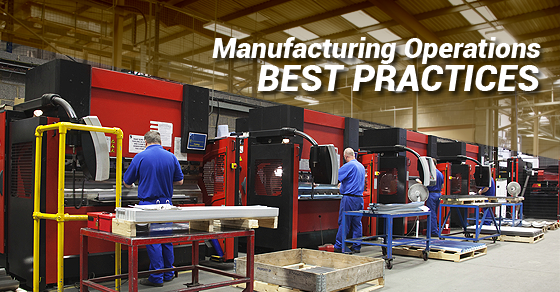Manufacturing has come a long way in the last 25 years. In fact, even in the last 5 years many things have changed. This can make it hard to know if your company’s method of operation is appropriate for sustaining your business in the changing marketplace. Many companies are reluctant to adjust to new methods of thinking and, while equipment tends to evolve quickly and unimpeded, work processes are slow to catch up and remain paper-based transactions in many cases.

The Manufacturing Execution System (MES) has simply outlived its original purpose due to constant changes in increasingly competitive markets. Manufacturers must now broaden their approach and focus no longer on simply the work performed within a single facility, but instead they must now consider the entire supply network from raw materials through manufacturing and shipping to the retailers. Best-in-class manufacturers are finding new technological solutions that help them manage their entire operations from production to maintenance to quality control and inventory management. The goal is to improve the utilization of assets and materials and ensure the continued improvement of work procedures.
Best Practices
The real value of Manufacturing Operations Management (MOM) can be seen in the success of best-in-class manufacturers who have experienced 5% increases in on-time delivery to a total of 97%, an 11% increase in equipment effectiveness for a total of 89%, and an 11% increase in raw material usage for a total of 97%. These improvements are quite significant and can lead to a much better bottom line as well as improved customer service and cost effectiveness across your company.
Best practices can be established by examining the most common characteristics shared by some of these best-in-class manufacturers. These companies are:
- Twice as likely to combine automated data collection with traditional methods, such as analytics and data historians
- Up to four times more likely to standardize their procedures enterprise-wide including KPI measurement, optimization, and exception handling
- 2.5 times more likely to make decisions based on operational metrics and financial information examined in real-time
- 114% more likely to utilize Manufacturing Intelligence
- 56% more likely to try Lean manufacturing
- 55% more likely to make use of Advanced Planning and Scheduling
- 50% more likely to use Plant Floor Automation
- 17% more likely to use Quality Management Systems
MOM has progressed beyond the initial scope of MES and requires new action to be taken by manufacturers in order to achieve best-in-class status. This includes:
- Appointment of an executive steering committee. This committee will be responsible for defining the strategy for manufacturing solutions investments
- Invest in plant floor automation and automated data collection
- Provide an enterprise-wide solution platform which connects all necessary business processes

